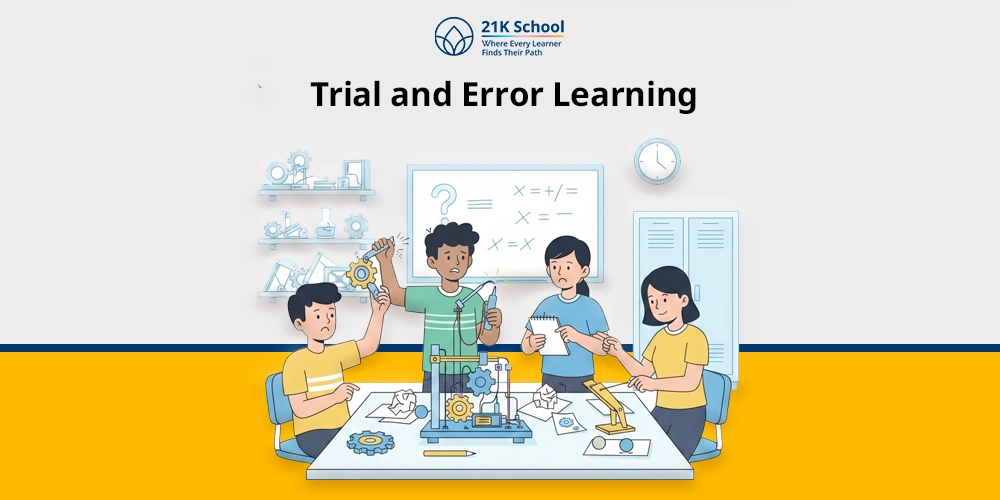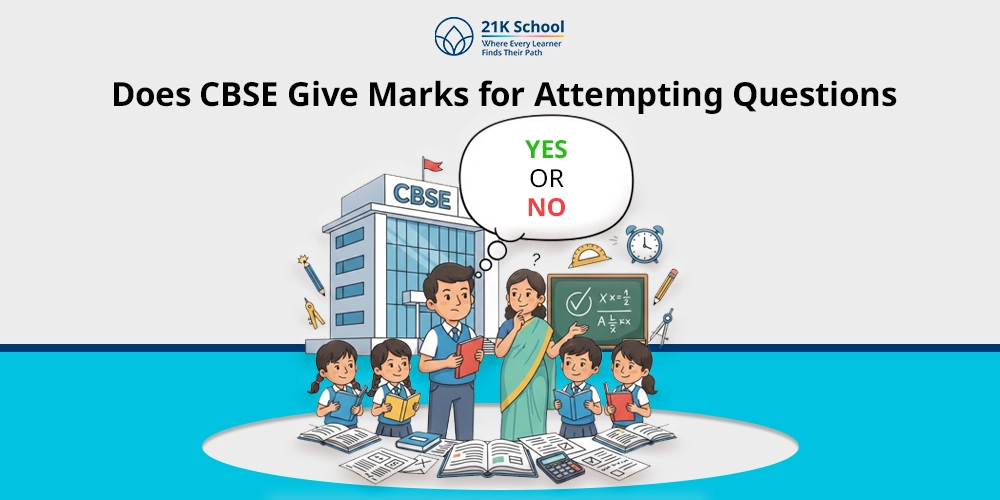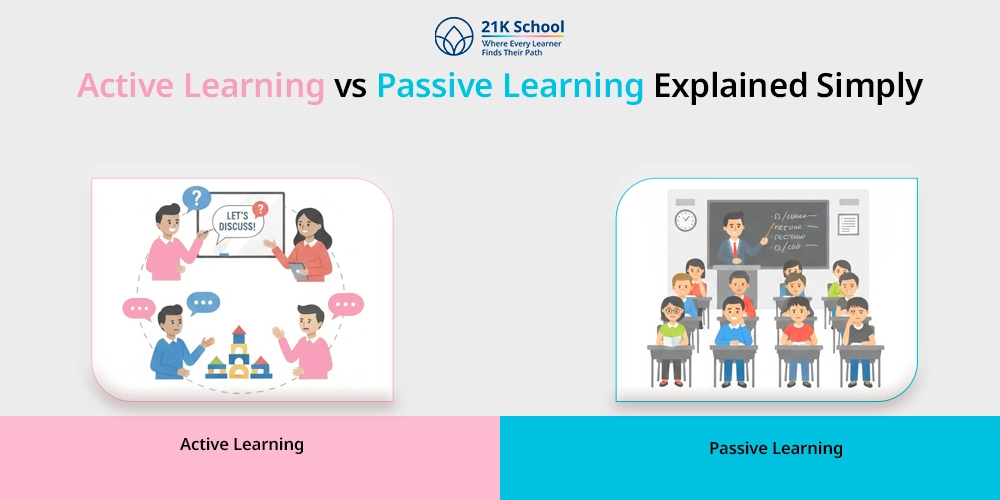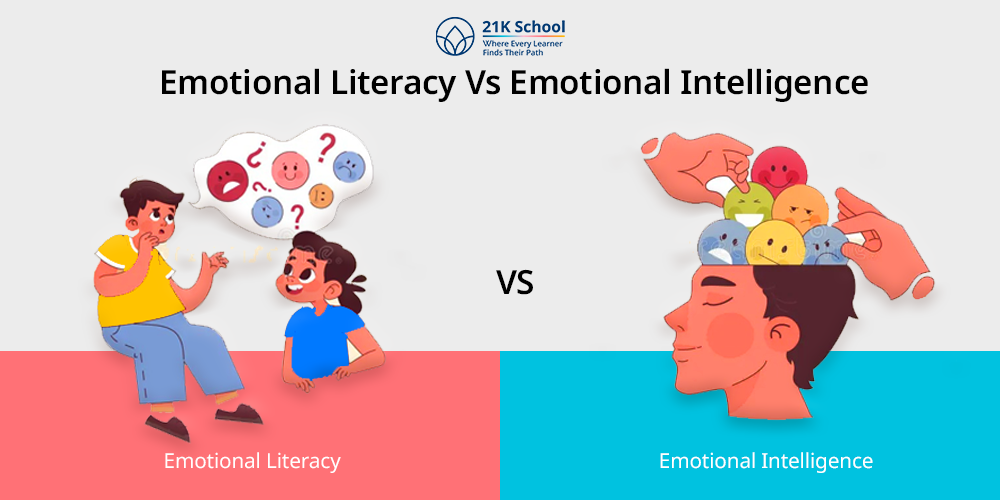
Have you ever thought about why emotional literacy and emotional intelligence are not related to each other?
Emotional literacy and emotional intelligence are two different concepts related to each other.
Many people considered emotional literacy and emotional intelligence as the same because both are related to emotions, intelligence and behaviours of individuals.
Emotional literacy is defined as the capacity to understand and express emotions, including having a broad vocabulary of emotions and recognising them in oneself and others through cognitive development of children .
Emotional intelligence, on the other hand, is the more all-encompassing capacity to understand, use and effectively regulate emotions in oneself and others in order to function in social settings and make informed decisions.
Emotional literacy and emotional intelligence are both essential aspects for overall well-being and academic achievements.
Table of Contents
What is Emotional Literacy?
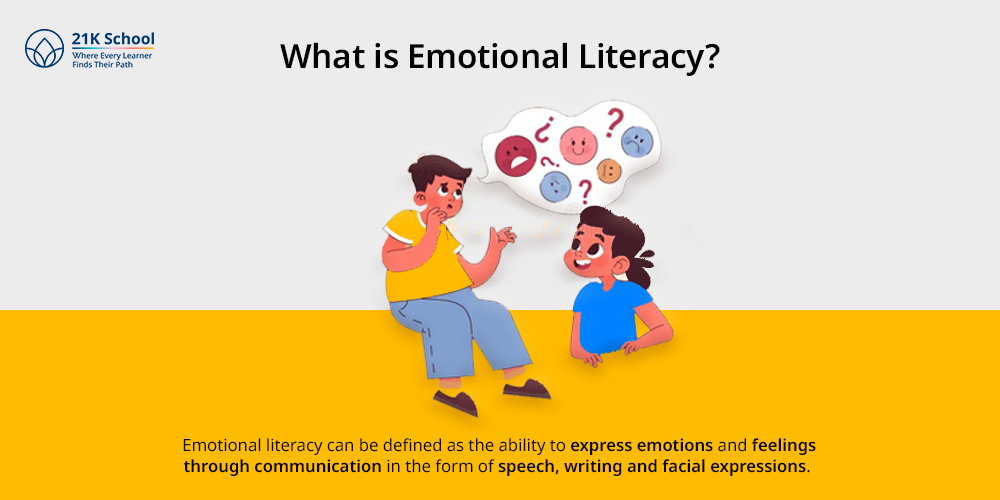
Emotional literacy can be defined as the ability to express emotions and feelings through communication in the form of speech, writing and facial expressions. The term emotional literacy was first described by Claude Steiner in the year 1977.
According to Steiner, emotional literacy was a key aspect in helping individuals, especially children, to have control over their own emotions in an empowering way that would also improve their quality of life.
Emotional literacy is an essential skill which children should develop from an early age. Emotional literacy is sometimes used in parallel to emotional intelligence, but both are distinct from each other.
The ability to read and communicate our emotions as well as those of others is a component of emotional literacy.
Children who lack emotional literacy may find it difficult to communicate their emotions in a healthy way and may become afraid or perplexed by those of others.
What is Emotional Intelligence?
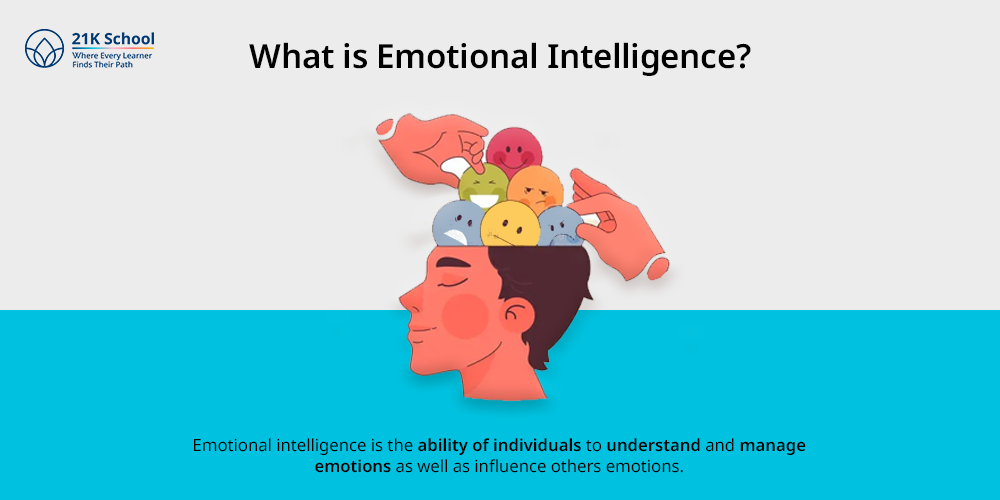
Emotional intelligence is the ability of individuals to understand and manage emotions as well as influence others emotions.
The term emotional intelligence was first described by John Mayer and Peter Salovey, but was later popularised by psychologist Daniel Goleman in the year 1990.
Emotional intelligence is also known as Emotional Quotient (EQ), which is the process to perceive, interpret, demonstrate, control, evaluate, and analyse emotions to communicate with others.
This helps in enhancing communication skills among students and allows them to express their thoughts and experiences. High emotional intelligence helps in developing overall well-being and promotes positive relationships with others.
Emotional intelligence allows children to achieve academic and professional success in every field, making it an integral part of personality development.
Emotional Literacy Vs Emotional Intelligence – Top 5 Differences
Both the terms emotional literacy and emotional intelligence are different, but share a common feature of sharing emotions.
The development of the more general skills associated with emotional intelligence is based on emotional literacy, a subset of emotional intelligence.
Both are essential for student engagement , growth and overall well-being.
Positive emotional intelligence and emotional literacy enhance children’s mental health and boost their creative thinking skills . The following are the differences between emotional literacy and emotional intelligence
| Aspect | Emotional Literacy | Emotional Intelligence |
| Definition | Emotional literacy refers to the ability to recognise, express, and regulate one’s own emotions as well as those of others. | Emotional intelligence is the ability to use and regulate your own emotions in healthy ways to lower stress, communicate effectively, empathise with others, overcome challenges and defuse conflict. |
| Focus | Emotional literacy focuses mostly on recognising, comprehending and expressing one’s own and other people’s emotions. | Emotional Intelligence focuses on enhancing emotional literacy by incorporating the capacity to control and make positive use of emotions. |
| Scope | The scope of emotional literacy is to provide a basic understanding of emotions and focuses on the principles of emotional communication. | The scope of emotional intelligence is to extend its basic understanding to incorporate the use of emotional intelligence in contexts like relationship management, personal growth and decision-making. |
| Benefits | Emotional literacy promotes communication skills, self-awareness, empathy, better relationships, etc. | Emotional intelligence promotes decision making, healthy relationships, teamwork, leadership, etc. |
| Components | The components of emotional literacy are recognising emotions, understanding emotions, expressing emotions, and self-awareness. | The components of emotional intelligence are self-regulation, motivation, empathy, social skills, and self-awareness. |
Components of Emotional Literacy
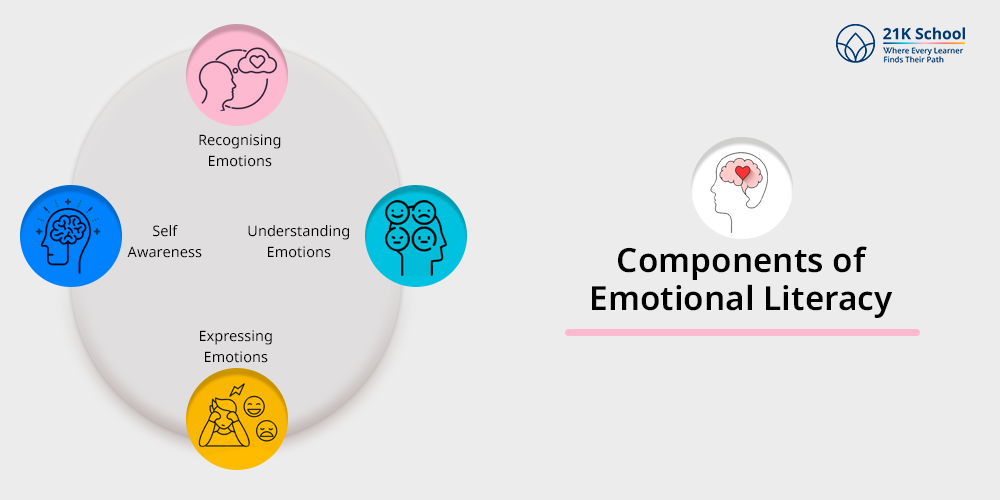
Emotional literacy is an essential skill for the overall growth and development of students.
This includes some components such as recognising, understanding, expressing, and developing self-awareness towards emotions. Even self-awareness activities for students also help in developing emotional literacy.
Emotional literacy also creates a positive learning environment , allowing students to share their emotions and feelings. The following are the components of emotional literacy.
1. Recognising Emotions
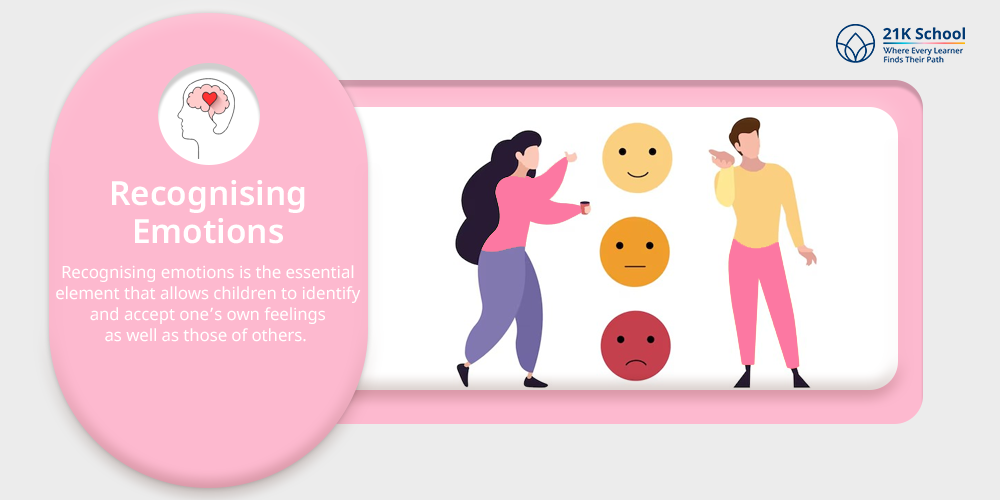
Recognising emotions is the essential element that allows children to identify and accept one’s own feelings as well as those of others.
This ability includes proper communication skills , which can be expressed through emotional states such as body language, facial expressions and physical cues.
Recognising emotions is essential for relationship building and effective communication because it helps students to understand their own and other people’s emotional reactions.
2. Understanding Emotions
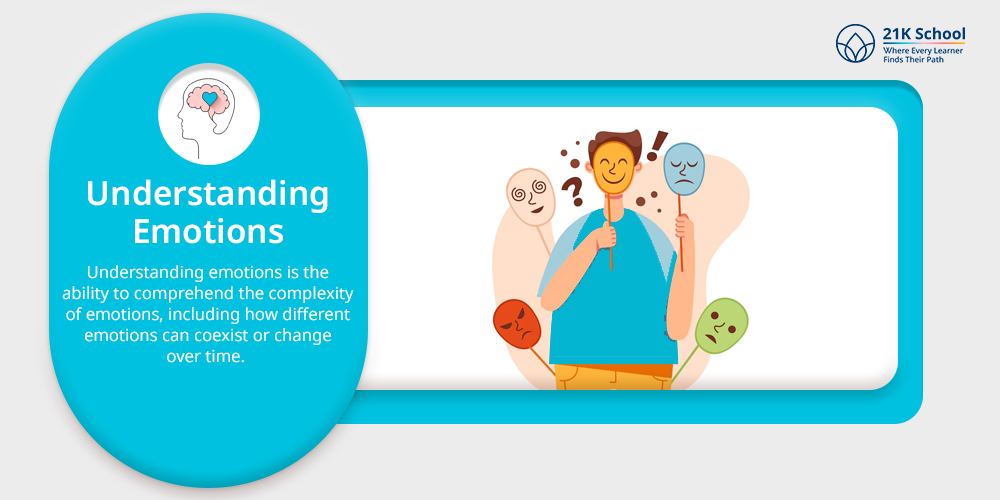
Understanding emotions is the ability to comprehend the complexity of emotions, including how different emotions can coexist or change over time.
Understanding emotions can help people become more cognizant of their emotional triggers and how emotions impact their behaviour and judgment, allowing them to respond more wisely in a range of situations.
3. Expressing Emotions
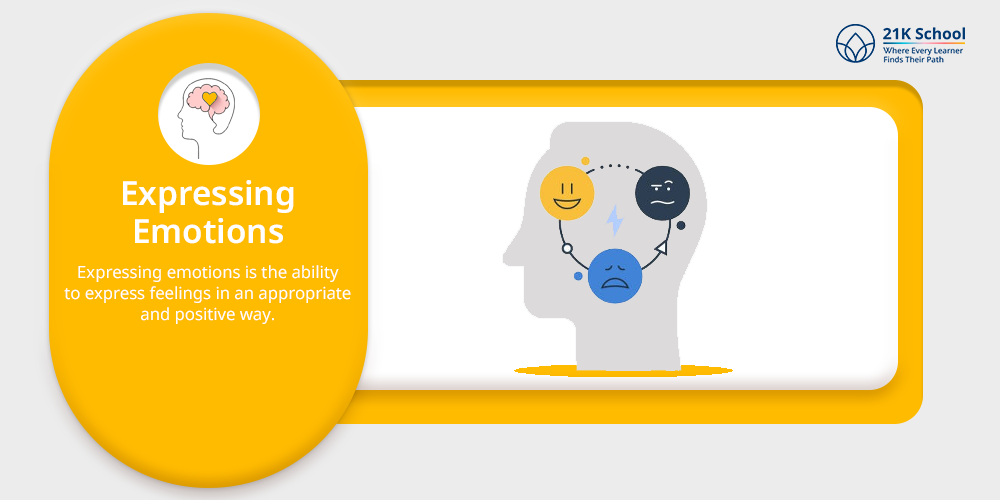
Expressing emotions is the ability to express feelings in an appropriate and positive way.
Emotions can be expressed through body language, facial expressions and open discussions about feelings that encompass both spoken and nonverbal communication.
People are able to effectively express their emotions to others, which strengthens ties and promotes empathy and understanding in social interactions.
4. Self Awareness
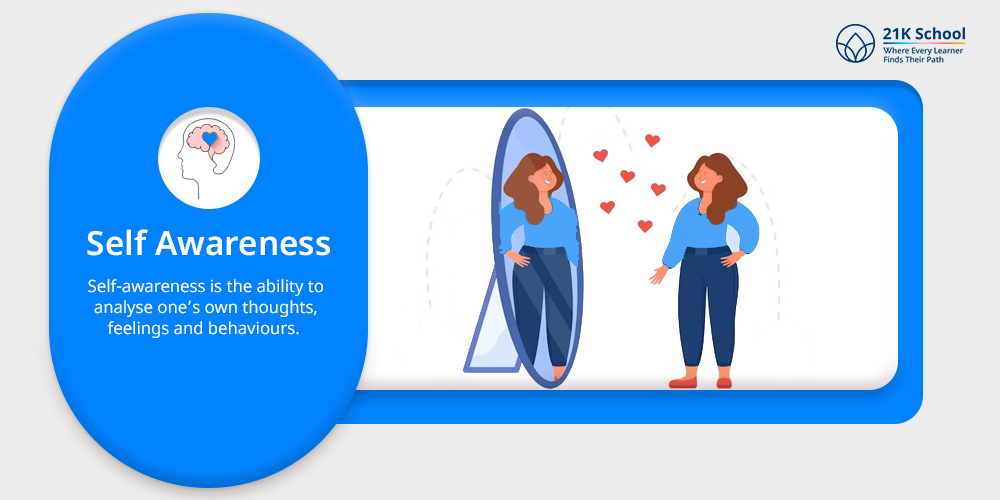
Self-awareness is the ability to analyse one’s own thoughts, feelings and behaviours. It involves recognising one’s own advantages and disadvantages as well as the ways in which emotions influence behaviour.
Gaining self-awareness enables students to respond to situations with greater emotional intelligence and make better decisions by better managing their emotions, which helps in enhancing critical thinking skills .
Components of Emotional Intelligence
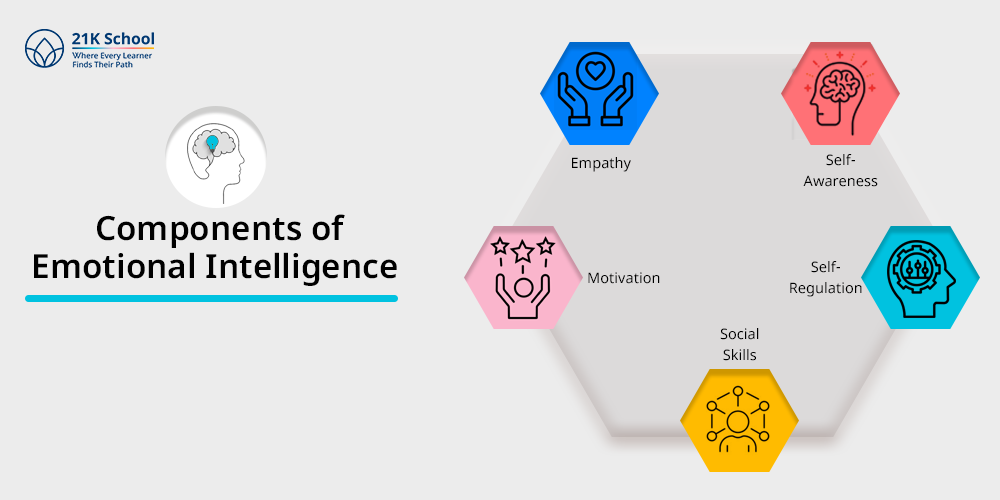
Emotional intelligence is parallel to emotional literacy; emotional intelligence contains some aspects which are the essential components which make it effective.
Social skills, self-regulation and self-awareness are considered the vital components of emotional intelligence.
Developing these skills allows students to enhance their emotional intelligence, improve relationships, better decision-making, and greater resilience. Here are the components of emotional intelligence.
1. Self-Awareness
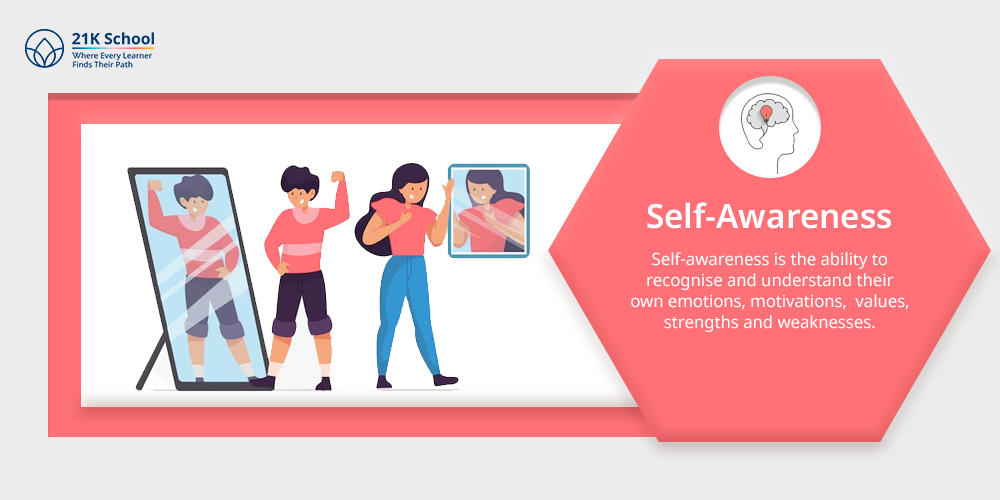
Self-awareness is the ability to recognise and understand their own emotions, motivations, values, strengths and weaknesses.
Self-awareness activities can be improved by various self-awareness activiteis for students , as well as fun in learning approaches.
It involves understanding the ways in which emotions impact thoughts and behaviour. The ability to precisely assess one’s emotional state and how it influences one’s behaviour leads to better decision-making and personal growth.
2. Self-Regulation
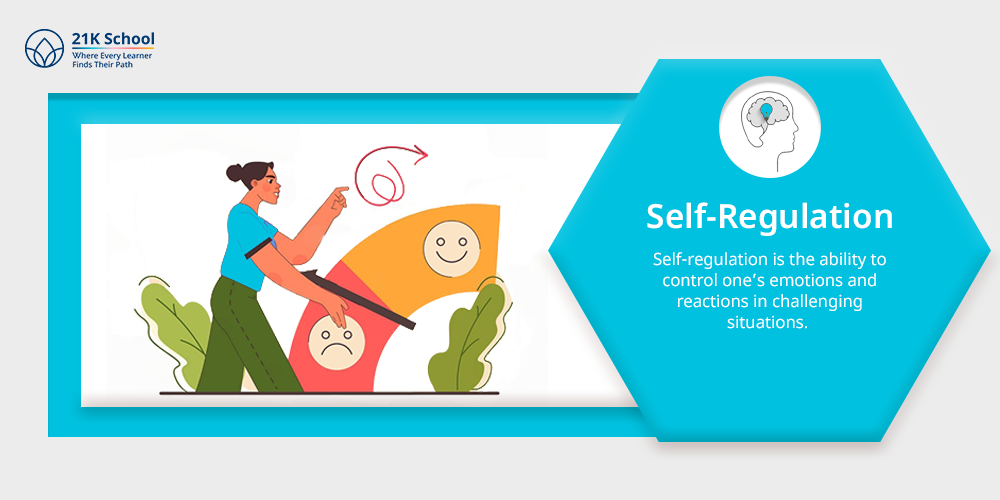
Self-regulation is the ability to control one’s emotions and reactions in challenging situations, and improving this skill contributes to effective stress management for students.
Students who can effectively handle study stress can adapt to changes and remain calm under pressure, which also enhances problem-solving skills .
3. Social Skills
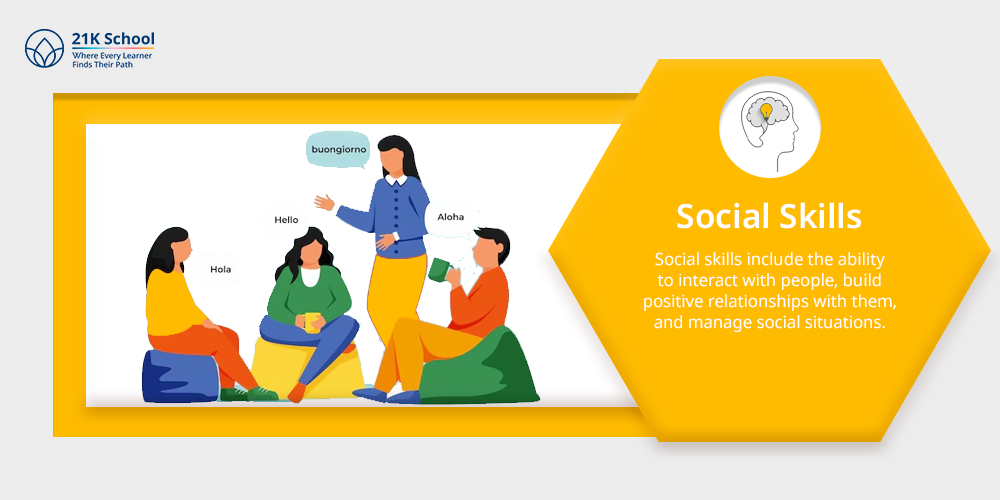
Social skills include the ability to interact with people, build positive relationships with them, and manage social situations. This is also known for enhancing social emotional learning among kids.
This encompasses skills like conflict resolution, teamwork, leadership and communication skills, all of which are vital interpersonal skills. In both personal and professional contexts, people with strong social skills can work together to enhance their working possibilities.
4. Motivation
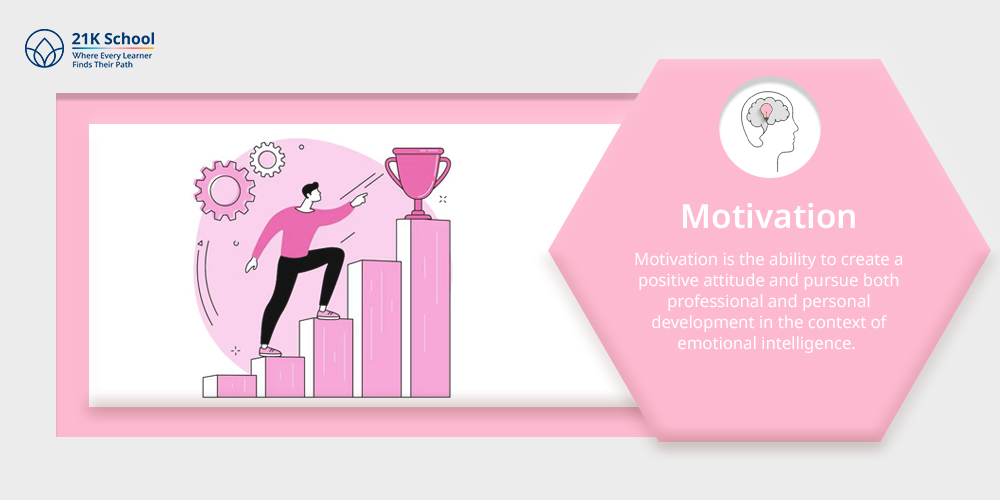
Motivation is the ability to create a positive attitude and pursue both professional and personal development in the context of emotional intelligence.
Highly motivated individuals are active and positive and are committed towards achieving their objectives, which also reflects strong student leadership qualities.
Students with high motivation are able to manage their emotions, which keeps them motivated and focused in the face of adversity.
5. Empathy

Empathy is the ability to understand and feel another person’s emotions. It comprises recognising emotional cues, listening to the opinions of others and responding with compassion.
Empathic people are able to build strong relationships, earn others’ trust and effectively support them. This component is essential for an effective collaborative learning environment and promotes cooperative learning .
Final Thought
Emotional literacy and emotional intelligence serve distinct purposes in social and personal development, much like the difference between education and literacy in a broader context.
The ability to recognise, understand, and express emotions as well as to be self-aware of one’s own feelings is the cornerstone of effective communication as well as proper parent child relationship development.
On the other hand, emotional intelligence encompasses a broader range of skills that are essential for achieving personal goals and navigating social situations, such as self-control, social skills, motivation and empathy.
Together, these skills significantly improve academic achievement, overall health and the ability to form wholesome relationships, making them crucial for students’ growth. This is why social emotional learning activities play a key role in schools.

